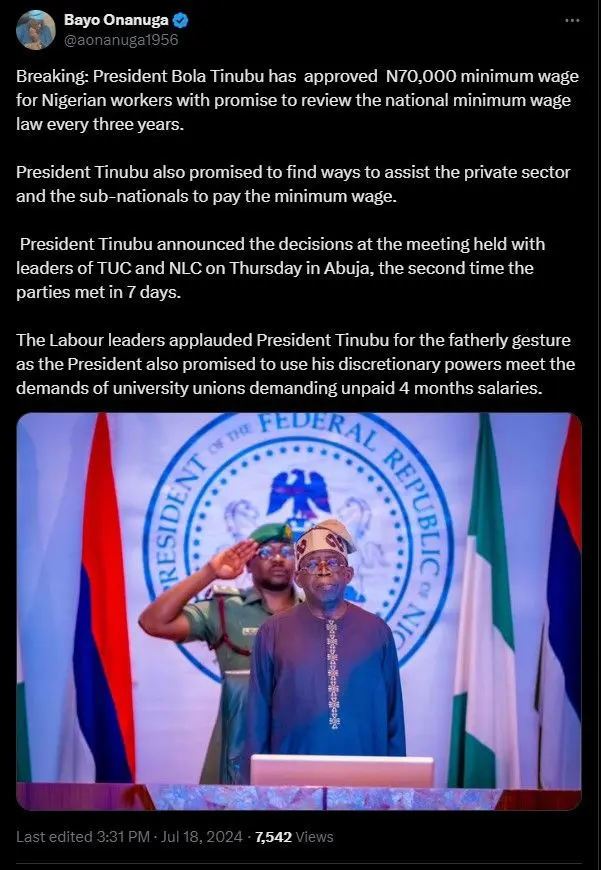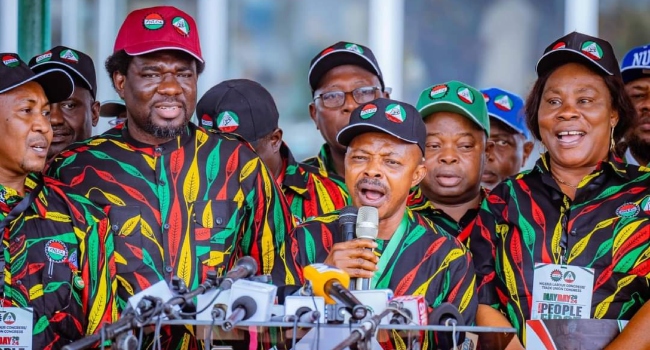President Bola Tinubu’s announcement of a new minimum wage of N70,000 for civil servants has sparked various responses across Nigeria. The new wage, which replaces the previous N30,000 minimum wage that expired on April 18, 2024, was approved during a meeting with labour leaders in Abuja on Thursday.

Reactions from Enugu
In Enugu, responses have been divided. Olu Omotayo, a local lawyer and president of the Citizens’ Rights Realisation and Advancement Network (CRRAN), praised President Tinubu for resolving the prolonged wage negotiation. He acknowledged the president’s efforts to reach a compromise and emphasized that while the initial labour demands were high, the new wage was a step forward. Omotayo stressed the need for full implementation to ensure workers benefit from the new rate.
Matthew Ugbo, a civil servant, also welcomed the decision, commending both the labour leaders and the federal government. He urged the government to expedite the process by sending the bill to the National Assembly for quick passage and immediate enactment.
Criticisms and Concerns
However, not everyone is pleased with the new wage. Godsown Onuzulike, president of The Potters Wheel in Enugu, argued that N70,000 is insufficient given the high cost of living. He suggested that civil servants may need to cut back on expenses, such as opting for more affordable schooling and housing.
Christian Alumona, another civil servant, expressed disappointment, pointing out that the new minimum wage falls short compared to the rising cost of essentials, like rice, which is nearly N100,000 per bag. He had hoped for a wage increase of N100,000 to N150,000 and worried that deductions might reduce the effective wage even further.
Lilian Okolo, another civil servant, shared similar concerns, noting that the N70,000 wage will barely cover basic needs, including fuel costs, which are high in Enugu. She had anticipated a minimum wage of at least N100,000 to meet the demands of daily life better.
While some view the N70,000 wage as a positive step, others believe it falls short of addressing the high cost of living and economic challenges many Nigerians face.











